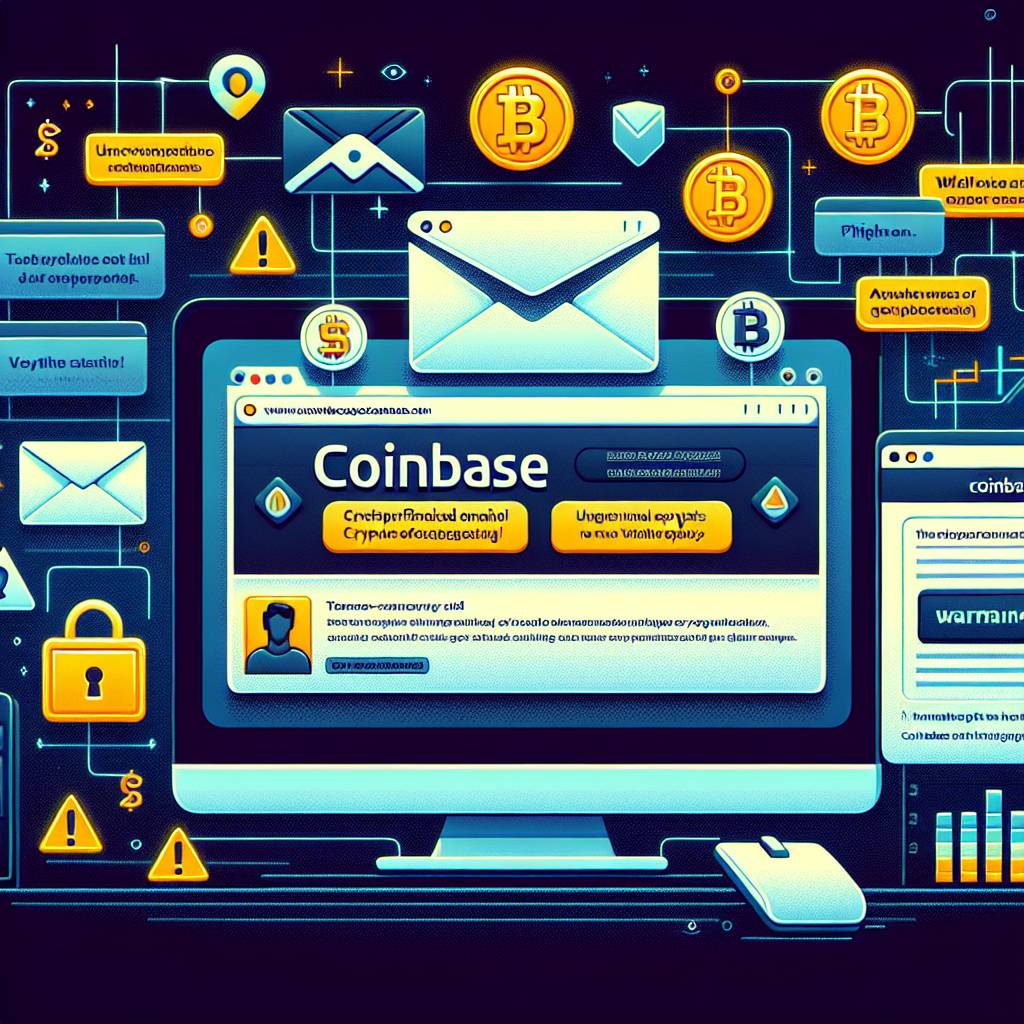What are the signs of a phishing email related to cryptocurrency?
Can you provide some signs or indicators that can help identify a phishing email related to cryptocurrency?

3 answers
- One common sign of a phishing email related to cryptocurrency is the presence of suspicious links or attachments. These links may lead to fake websites that mimic legitimate cryptocurrency exchanges or wallets, aiming to steal your login credentials or private keys. It's important to always double-check the URLs and avoid clicking on any suspicious links or downloading unknown attachments. Another indicator is poor grammar and spelling mistakes in the email. Phishing emails often contain errors and typos, as they are usually sent by scammers who may not have English as their first language. If you notice any grammatical errors or awkward phrasing, it's a red flag. Additionally, be cautious of emails that create a sense of urgency or fear, such as claiming that your account will be suspended unless you take immediate action. Phishing emails often use psychological tactics to manipulate recipients into providing their sensitive information. Remember, legitimate cryptocurrency companies will never ask for your password or private keys via email. If you receive an email requesting this information, it's likely a phishing attempt. Always verify the legitimacy of the email by contacting the official customer support channels of the cryptocurrency platform in question.
 Jan 13, 2022 · 3 years ago
Jan 13, 2022 · 3 years ago - Phishing emails related to cryptocurrency often try to create a sense of urgency or fear in order to trick recipients into taking immediate action. They may claim that there has been suspicious activity on your account or that your funds are at risk. These emails often include urgent requests to verify your account information or reset your password. Another sign to watch out for is emails that ask for your personal information, such as your social security number, date of birth, or credit card details. Legitimate cryptocurrency companies will never ask for this sensitive information via email. If you receive an email requesting such information, it's a clear indication of a phishing attempt. Furthermore, be cautious of emails that offer too-good-to-be-true investment opportunities or promise high returns with little to no risk. Scammers often use these tactics to lure unsuspecting individuals into fraudulent schemes. To protect yourself from phishing emails, always double-check the sender's email address, hover over links to see the actual URL before clicking, and enable two-factor authentication for your cryptocurrency accounts.
 Jan 13, 2022 · 3 years ago
Jan 13, 2022 · 3 years ago - As an expert in the cryptocurrency industry, I can tell you that phishing emails are a serious threat to the security of your digital assets. It's crucial to be able to identify the signs of a phishing email to protect yourself from falling victim to scams. One of the most common signs of a phishing email related to cryptocurrency is the request for your login credentials or private keys. Legitimate cryptocurrency companies will never ask for this information via email. If you receive an email asking for your password or private keys, it's a clear indication of a phishing attempt. Another indicator is the use of generic greetings like 'Dear Customer' instead of addressing you by your name. Legitimate companies usually personalize their emails and address you by your name. Additionally, be cautious of emails that contain urgent requests for financial information or require immediate action. Phishing emails often create a sense of urgency to pressure you into providing your sensitive information without thinking twice. Remember to always verify the legitimacy of an email by contacting the official customer support channels of the cryptocurrency platform. Stay vigilant and protect your digital assets from phishing attacks.
 Jan 13, 2022 · 3 years ago
Jan 13, 2022 · 3 years ago
Related Tags
Hot Questions
- 97
What are the best practices for reporting cryptocurrency on my taxes?
- 96
What is the future of blockchain technology?
- 94
How can I buy Bitcoin with a credit card?
- 80
How can I protect my digital assets from hackers?
- 67
How does cryptocurrency affect my tax return?
- 65
What are the advantages of using cryptocurrency for online transactions?
- 64
How can I minimize my tax liability when dealing with cryptocurrencies?
- 22
Are there any special tax rules for crypto investors?
